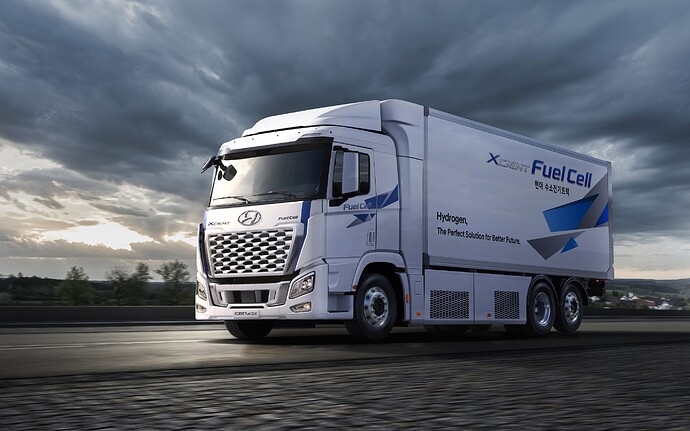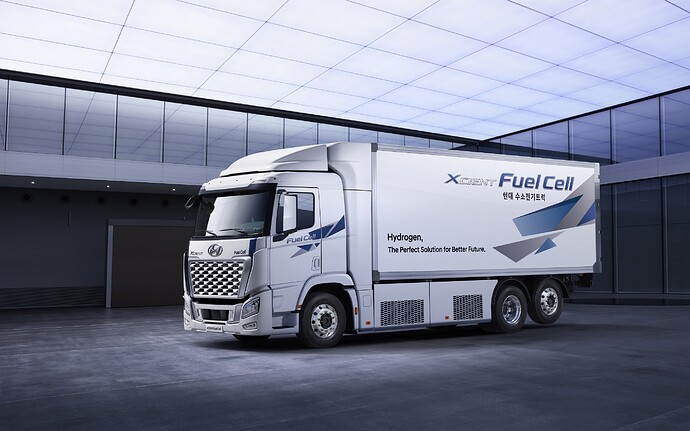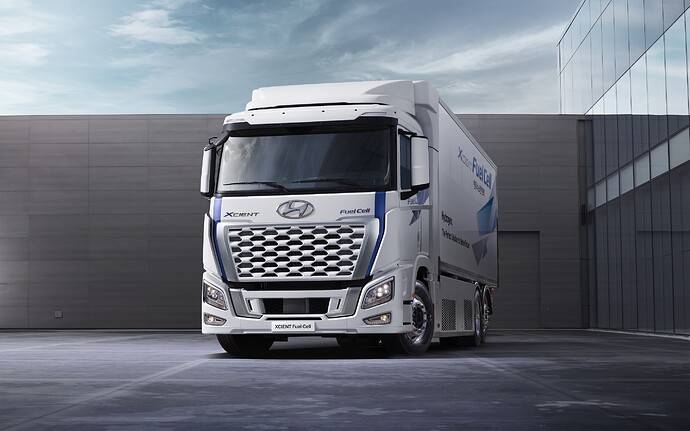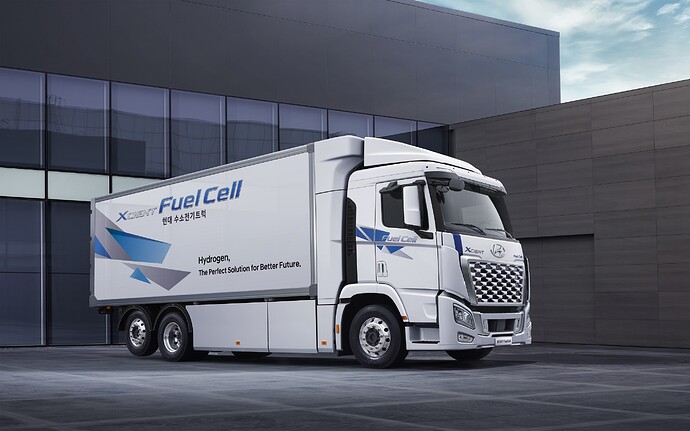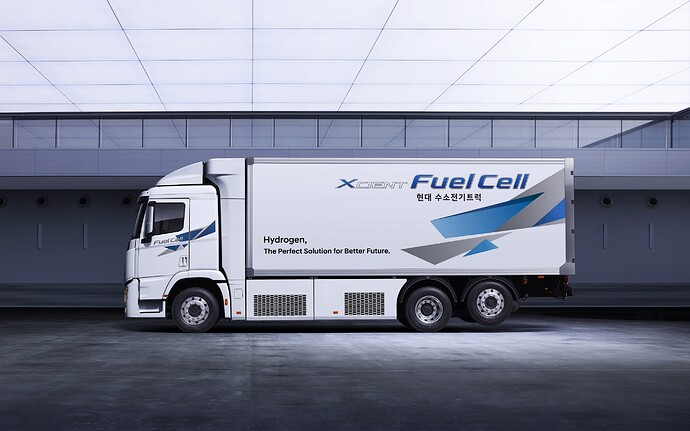- Hyundai’s 2021 XCIENT Fuel Cell heavy-duty truck presents bold grille design and performance updates
- Hyundai will ship additional 140 XCIENT Fuel Cells to Europe in 2021, in line with the company’s plan to roll out 1,600 units by 2025
- With XCIENT Fuel Cell, Hyundai is leveraging more than 20 years of fuel cell expertise to establish a hydrogen society in Europe, North America, and China
SEOUL, May 25, 2021 - Hyundai Motor Company today released images of its newly upgraded XCIENT Fuel Cell, the world’s first mass-produced, heavy-duty truck powered by hydrogen.
With design and performance updates, Hyundai’s zero-emission heavy-duty vehicle will become even more attractive to corporate fleet customers all over the world.
“Hyundai Motor is leveraging more than 20 years of experience in fuel cell technology to further its vision of an eco-friendly hydrogen society,” said Jaehoon (Jay) Chang, CEO and President of Commercial Vehicle Division at Hyundai Motor Company. “With 2021 XCIENT Fuel Cell, Hyundai will contribute to the widespread adoption of commercial vehicles powered by hydrogen.”
Hyundai will begin production of 2021 XCIENT Fuel Cell in August this year.
Better driving experience with improved design and performance
Hyundai has upgraded both the design and performance of XCIENT Fuel Cell, adding to its competitive edge for a better driving experience.
The updated exterior design expresses XCIENT Fuel Cell’s dynamic and eco-friendly performance. Decorated with a linear and bold ‘V’ shape of chrome details and multi-dimensional mesh patterns, the new radiator grille reflects the high-tech fuel cell electric truck’s unrivalled presence on the road, while serving its own technical function. The blue point color surrounding the grille and the decal graphics vividly visualizes XCIENT Fuel Cell’s use of eco-friendly hydrogen energy.
2021 XCIENT Fuel Cell is equipped with a 180-kW hydrogen fuel cell system with two 90-kW fuel cell stacks, newly modified for this heavy-duty truck model. The fuel cell system’s durability as well as the vehicle’s overall fuel efficiency has been improved to better stay in tune with the demands of commercial fleet customers. The 350-kW e-motor with maximum torque of 2,237 Nm further enables dynamic driving performance.
Seven large hydrogen tanks offer a combined storage capacity of around 31 kg of fuel, while a 72-kWh-powered set of three batteries provides an additional source of power. The maximum driving range of 2021 XCIENT Fuel Cell is set to be around 400 km* . Refueling a full tank of hydrogen takes about 8 to 20 minutes, depending on the ambient temperature.
2021 XCIENT Fuel Cell is now available in a 6x2 rigid body configuration as well as the 4x2 option introduced in the previous model.
XCIENT Fuel Cell hitting the roads in Europe, North America, and China
With the launch of the enhanced model, Hyundai plans to accelerate the global advancement of its heavy-duty fuel cell truck.
Hyundai shipped a total of 46 units of XCIENT Fuel Cell to Switzerland last year. As of May 2021, the cumulative driving range of those trucks in operation reached over 750,000 kilometers. Over that distance, the hydrogen-powered trucks have reduced carbon emissions by an estimated 585 tons* , compared to diesel-powered vehicles.
Hyundai will ship another 140 units of the new XCIENT Fuel Cell towards Switzerland by the end of this year as part of its plan to roll out 1,600 heavy-duty fuel cell electric trucks in Europe by 2025. Hyundai Hydrogen Mobility, a joint venture between Hyundai Motor and H2 Energy, is working on the introduction of XCIENT Fuel Cell in other European markets.
“The customers are very pleased with the quality and driving comfort of the truck. There is a lot of interest for the truck outside Switzerland as well. We are very confident that we will see XCIENT Fuel Cell trucks on the road in other European countries next year,” says Mark Freymueller, CEO of Hyundai Hydrogen Mobility.
Hyundai also plans to present XCIENT Fuel Cell to the North American market this year. Hyundai is in talks with several local governments and logistics businesses in the U.S. to establish potential joint operations of hydrogen-powered trucks for various purposes. The company is also planning to host XCIENT Fuel Cell roadshows and other events open to the general public.
China is another nation that has strong interest in heavy-duty trucks powered by hydrogen. Hyundai is carefully reviewing multiple options to introduce its fuel cell technology to corporate and government customers in China.
- XCIENT Fuel Cell is developed based on the hydrogen filling pressure of 350 bar.
- The number is calculated based upon the data that a diesel-powered truck that is same class with XCIENT Fuel Cell emits an average of 0.78kg of carbon dioxide per kilometer.
